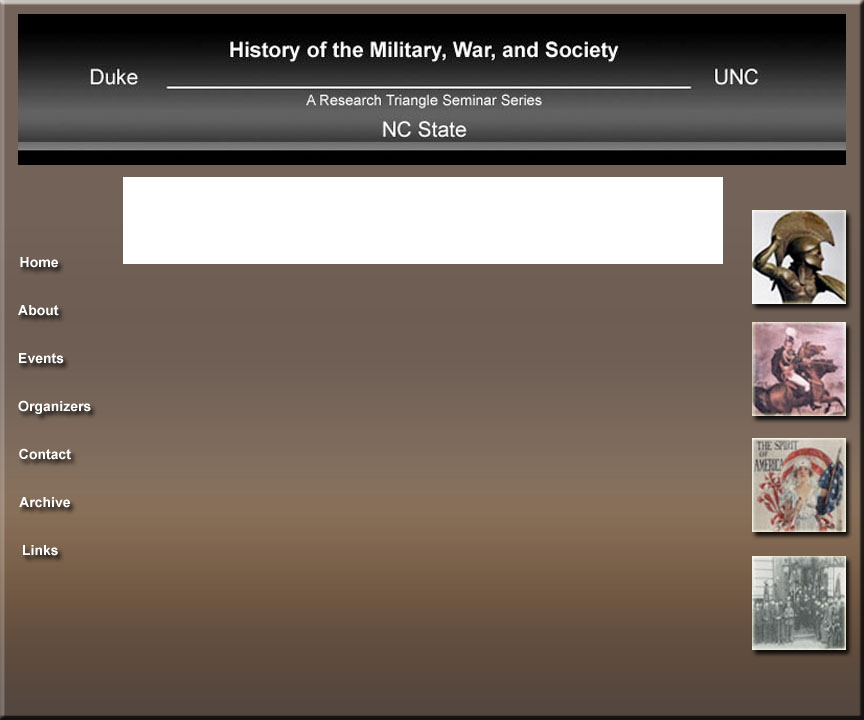
|
March 20, 2009 Heather Perry (University of North Carolina at Charlotte) Recycling the Disabled: The breathtaking technology of the First World War paradoxically destroyed and re-created the male body. Soldiers who would have died from less devastating wounds in previous wars returned from the trenches as mutilated bodies and unrecognizable figures. The unexpectedly high human cost of trench warfare was a constant drain on fit and healthy workers needed elsewhere in the German war economy. The presentation examines the response of German industry and medicine to this crisis and argues that through envisioning the male body as a machine that needed to be repaired and/or reproduced, medical professionals were able to rationalize the artificial re-creation of the wounded body. Ultimately, it demonstrates that modern medical technology allowed for the physi-cal “recycling of the disabled” within the labor economy of WWI Germany. Heather Perry is Assistant Professor for Modern German and European History at UNC Charlotte. The main fields of her research and teaching are Modern German history; the history of medicine and war; and the history of technology, gender, and the body. She is completing a book entitled Recycling the Disabled: Army, Medicine, and Society in WWI Germany and a co-edited volume, which examines this experience in an international and comparative context entitled Globalizing Disability: WWI and the Making of Modern Disability. She is also beginning a new project, which examines food, nutritional science, and the body during the First World War. |